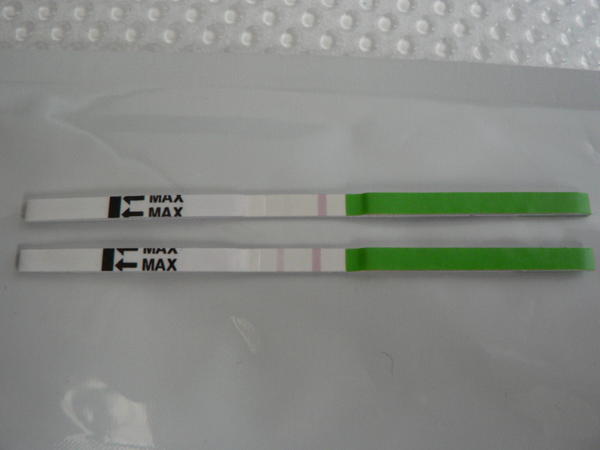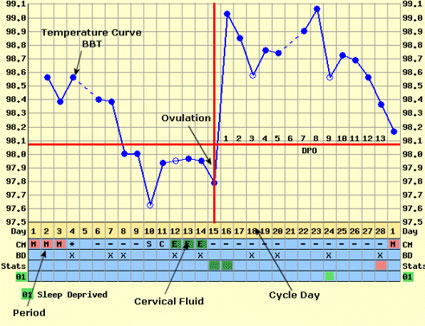Irregular menstruation can give rise to infertility issues. Irregular menstruation can be easily treated so as to get pregnant successfully. There are many causes of irregular menstruation, which needs to be treated for successful conception. Fertility drugs can enhance the fertility levels. Read on to know more about irregular menstruation and pregnancy. Most of the times it is found that irregular menstruation is related to infertility issues. Amongst 30-40% of the infertility cases, the women have a recorded common characteristic of irregular menstruation. So pregnancy may not be a very smooth affair with women suffering from irregular menstruation. Irregular menstruation is characterised by irregular periods, abnormal bleeding between the cycle, or the complete absence of periods. These symptoms are often an indication of the fact that the woman is not ovulating at all. This is a medical condition called Anovulation and can be treated with fertility drugs. It has been found that this condition is caused or affected by associated conditions like thyroid issues and adrenal and pituitary glands. In this articleHow to Consider Pregnancy with Irregular Periods?How is the Drug Administered and Effects?PCOS or Polycystic Ovary SyndromeThe Stress FactorHow to Consider Pregnancy with Irregular Periods? Since irregular periods are a mark of ovulation problems, it is important that the woman is treated with fertility drugs to enhance the chances of pregnancy. Physicians usually prefer Clomid and Serophene or Clomiphene to treat such conditions. Patients also seem to prefer these medicines as unlike other infertility medicines, they can be orally administered instead of injections; besides they are effective too. These drugs are observed to successfully induce ovulation and control irregular menstrual problems. This can be actually attained by stimulating the ovaries to produce more eggs. So once these conditions are treated, conception is found to become much easier. It has been found that over 10% of women, who suffer from irregular menstruation, succeed in attaining multiple gestation pregnancy and deliver twins. How is the Drug Administered and Effects? Clomiphene is usually administered in a dosage of 5mg for five days regularly after the commencement of the periods. Ovulation happens approximately after seven days from the day the last dose of the medicine was taken. If the ovulation is still not triggered, the doctor might increase the dosage from 50 to 150mg. it has been often found that such ovulation triggering drugs can turn the mucus of the vagina hostile for the sperm and it is not able to swim past and reach the uterus. This condition can be overcome through the help of artificial insemination. The egg is fertilised artificially and conception happens. PCOS or Polycystic Ovary Syndrome Irregular menstruation can also be caused by PCOS. This is an ovulation problem as well and almost 10% of women suffer due to PCOS during their reproductive years. The condition is actually caused due to a hormonal imbalance that obstructs the normal working of the ovaries. The ovaries get filled with miniscule cysts that are filled with fluids causing the ovaries to appear enlarged. Apart from irregular menstruation and bleeding, PCOS may result in the complete absence of periods as well. Treatment for PCOS Problem - PCOS cannot be completely cured but stimulating the ovaries can treat infertility. So stimulating ovulation can attain pregnancy and usually diabetes and obesity issues, so these needs to be controlled and treated as well, accompany PCOS. IVF can be a great option for women who are diagnosed with PCOS and desire pregnancy. The Stress Factor Irregular periods can also be caused by emotional or psychological problems like stress. Acute stress levels can affect the menstrual cycle and lead to even temporary absence of menstruation. In fact in some cases stress and infertility result in a viscous cycle. The couple needs to be very careful about this fact and according evolves their lifestyle and takes appropriate measures.
Irregular menstruation can give rise to infertility issues. Irregular menstruation can be easily treated so as to get pregnant successfully. There are many causes of irregular menstruation, which needs to be treated for successful conception. Fertility drugs can enhance the fertility levels. Read on to know more about irregular menstruation and pregnancy. Most of the times it is found that
irregular menstruation is related to infertility issues. Amongst 30-40% of the infertility cases, the women have a recorded common characteristic of irregular menstruation. So
pregnancy may not be a very smooth affair with women suffering from irregular menstruation.
Irregular menstruation is characterised by irregular periods, abnormal bleeding between the cycle, or the complete absence of periods. These symptoms are often an indication of the fact that the woman is not ovulating at all. This is a medical condition called Anovulation and can be treated with fertility drugs. It has been found that this condition is caused or affected by associated conditions like thyroid issues and adrenal and pituitary glands.
How to Consider Pregnancy with Irregular Periods?
Since irregular periods are a mark of ovulation problems, it is important that the woman is treated with fertility drugs to enhance the chances of pregnancy. Physicians usually prefer Clomid and Serophene or Clomiphene to treat such conditions. Patients also seem to prefer these medicines as unlike other infertility medicines, they can be orally administered instead of injections; besides they are effective too. These drugs are observed to successfully induce ovulation and control irregular menstrual problems. This can be actually attained by stimulating the ovaries to produce more eggs.
So once these conditions are treated, conception is found to become much easier. It has been found that over 10% of women, who suffer from irregular menstruation, succeed in attaining multiple gestation pregnancy and deliver twins.
How is the Drug Administered and Effects?
Clomiphene is usually administered in a dosage of 5mg for five days regularly after the commencement of the periods. Ovulation happens approximately after seven days from the day the last dose of the medicine was taken. If the ovulation is still not triggered, the doctor might increase the dosage from 50 to 150mg. it has been often found that such ovulation triggering drugs can turn the mucus of the vagina hostile for the sperm and it is not able to swim past and reach the uterus. This condition can be overcome through the help of artificial insemination. The egg is fertilised artificially and conception happens.
PCOS or Polycystic Ovary Syndrome
Irregular menstruation can also be caused by PCOS. This is an ovulation problem as well and almost 10% of women suffer due to PCOS during their reproductive years. The condition is actually caused due to a hormonal imbalance that obstructs the normal working of the ovaries. The ovaries get filled with miniscule cysts that are filled with fluids causing the ovaries to appear enlarged. Apart from irregular menstruation and bleeding, PCOS may result in the complete absence of periods as well.
Treatment for PCOS Problem - PCOS cannot be completely cured but stimulating the ovaries can treat infertility. So stimulating ovulation can attain pregnancy and usually diabetes and obesity issues, so these needs to be controlled and treated as well, accompany PCOS. IVF can be a great option for women who are diagnosed with PCOS and desire pregnancy.
The Stress Factor
Irregular periods can also be caused by emotional or psychological problems like stress. Acute stress levels can affect the menstrual cycle and lead to even temporary absence of menstruation. In fact in some cases stress and infertility result in a viscous cycle. The couple needs to be very careful about this fact and according evolves their lifestyle and takes appropriate measures.































